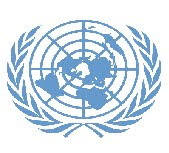 Achieving national food security in Côte d'Ivoire and addressing the needs of the smallholder farmers and the rural poor were among the topics discussed during a visit by the head of the United Nations International Fund for Agricultural Development (IFAD) that wrapped up today.
Achieving national food security in Côte d'Ivoire and addressing the needs of the smallholder farmers and the rural poor were among the topics discussed during a visit by the head of the United Nations International Fund for Agricultural Development (IFAD) that wrapped up today.Talks between Kanayo F. Nwanze and Ivorian Prime Minister Guillaume Soro and other senior cofficials also focused on IFAD's support to the Government in dealing with high food prices and the country's post-conflict situation, as well as investment in agricultural development programmes.
Among the projects that IFAD is helping to finance in the West African nation is the Small Horticultural Producer Support Project, which seeks to boost rice production.
Begun in 2001, the initiative is IFAD's first thematic project focusing on small-scale irrigation related mostly to vegetable production and marketing in the region.
The Rome-based agency is also working with the Government on devising a project to strengthen rice, cassava and yam production among rural groups made vulnerable by the global food crisis.
During the two-day visit to Abidjan, Mr. Nwanze – who took up his post this past February – also looked at how to speed up the preparation of a country strategic opportunities programme (COSOP), a tool used to ensure that IFAD country operations produce a positive impact on poverty.
Designed through a process of wide consultations with a number of stakeholders, the COSOP reviews the specific rural poverty situation in a country, and is used for making strategic choices about IFAD operations in a country as well as identifying opportunities for IFAD financing.
Since 1984 IFAD has invested $66.7 million in seven programmes and projects in Côte d'Ivoire.
________________ 





